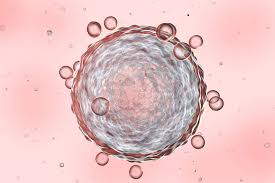It is well known that lifestyle has a significant impact on our overall health, so it makes sense that it might also affect the health of sperm and male fertility generally.
It is not uncommon for men to have a normal sperm count, and the couple is still struggling to get pregnant. It’s quite clear that just looking at sperm count and activity, or looking for abnormal shapes and sizes, is not enough to tell whether you’re fertile or not. It is advised to do a more specialised test that looks at the integrity and structure of the sperm DNA because, if it’s damaged, it may explain why somebody’s not getting pregnant.
We know that a number of lifestyle factors can affect DNA fragmentation. So, let’s explore some lifestyle changes and how they affect male fertility. This could just make the difference for you.
1. Diet changes can affect male fertility.
Good nutrition supports all of the body’s functions, including producing healthy sperm. Men who have fewer dietary vitamins or antioxidants can have more sperm DNA damage because antioxidants protect the body and the sperm against harmful environmental factors.
A healthy diet with varied coloured fruits and vegetables, whole-grain cereals, and good-quality protein can improve sperm quality. Certain nutrients, such as vitamins E and C, plus zinc, can be especially important for healthy sperm, but the most important thing is to have a good, balanced diet with a wide range of nutrient-rich foods. Taking a daily high-quality multivitamin might also help, but not in excessive amounts
2. Smoking is also a factor to consider.
This is no news; I believe you know smoking has a negative effect on health, as well as damage sperm DNA and decrease sperm quality, motility, and count. It’s better to minimize smoking when trying to conceive, and if possible completely avoid it.
3. Alcohol
Studies have found that men who drink alcohol may have a lower sperm count than those who don’t. As for whether there’s ‘a safe amount of alcohol you can drink’ is difficult to say. Excessive alcohol consumption can affect sperm quality, motility, count, and morphology. But you already have difficulty conceiving or undergoing IVF; it is advised to have none.
4. Poor sleep affects male fertility.
Research has found that both poor or lack of sleep may be a factor in male infertility. Poor sleep is no good for anyone; the general guide of the 7-8 hours-a-night rule is a pretty good aim. Sleep deprivation or broken sleep can disrupt the release of sex hormones, which can decrease testosterone levels and sperm motility.
5. Exposure to heat can also affect male fertility.
Spermatogenesis, the process of sperm production, is highly sensitive to temperature. When the testicles are exposed to elevated temperatures, the process of spermatogenesis can be disrupted. This disruption can manifest in several ways, including reduced sperm count, impaired sperm motility, and increased rates of sperm abnormalities.
One common source of elevated testicular temperature is the use of hot tubs, saunas, and steam rooms; heat exposure is the use of laptops directly on the lap; tight or synthetic clothing that doesn’t breathe, especially underwear, and pants that don’t allow proper ventilation can trap heat around the groin area, negatively affecting spermatogenesis.
Try switching to looser, breathable fabrics like Coolbeans or Snowballs for a beneficial blast of cool.
6. Stress is also a factor that can affect male fertility.
Ongoing stress can cause hormonal imbalances within the body, which may affect us in a range of ways, possibly including men’s sperm. It’s also important to recognise that trying to get pregnant or going through fertility tests or treatment can be stressful in itself. It’s actually quite common for men to get erection problems when trying to get pregnant because they’re suddenly forced to perform and put under that extra pressure. Try not to add to the pressure you’re already under, but make time for relaxation, get plenty of sleep, eat well, and exercise—all things that will help keep stress in check.
Stress can impair testosterone secretion, which can suppress spermatogenesis.
7. Obesity
Obesity is recognised as being one of the common causes of male infertility. Generally speaking, people with a higher BMI are more likely to have lower fertility compared with people within the healthy BMI range. “Obesity metabolic syndrome, which can cause a reduction in men’s testosterone levels, potentially impacting their fertility levels,” says Professor Minhas Suks of Andrology Solutions.
It won’t do any harm to take sensible steps to lose weight if you’re overweight or obese and trying for a baby.
8. Anabolic steroids
Another thing that definitely does have a very clear impact on your sperm is anabolic steroids, which some men take to make their bodies more muscular. They can have very serious effects on sperm, and sperm production may even stop altogether. It can take years to reverse the impact of anabolic steroids, and sometimes this may never happen. It is essential to stop taking steroids if you are trying to conceive.
9. Endocrine disrupting chemicals (EDC).
It has been suggested that exposure to EDCs may result in impaired sperm motility, concentration, volume, and morphology, as well as increased sperm DNA damage.
Endocrine disrupting chemicals, or EDCs, are widespread chemicals which exist in the environment we live in, the food we consume and the products we use. EDCs include bisphenol A (you’ll know that as BPA), dioxins, pesticides, heavy metals, and parabens, amongst others. They can mimic or block the natural processes of the endocrine/hormone system, “tricking” your body into thinking it has produced more or less of certain hormones than it actually has, including testosterone and oestrogen. Knowing how to reduce your exposure will help you make fertility favourable choices.
I hope this have given you a complete breakdown of lifestyle factors that can affect male fertility. What’s left is up to you to make informed decisions about your fertility health, or that of your spouse.








0 Comments